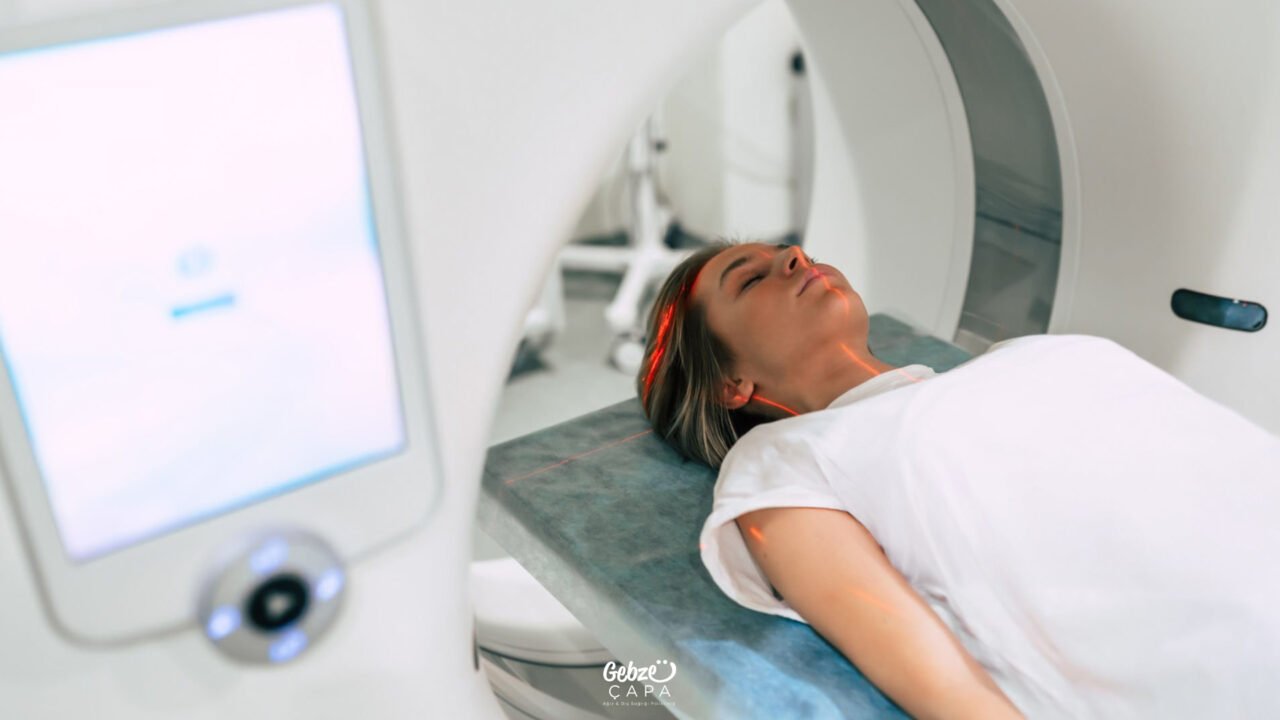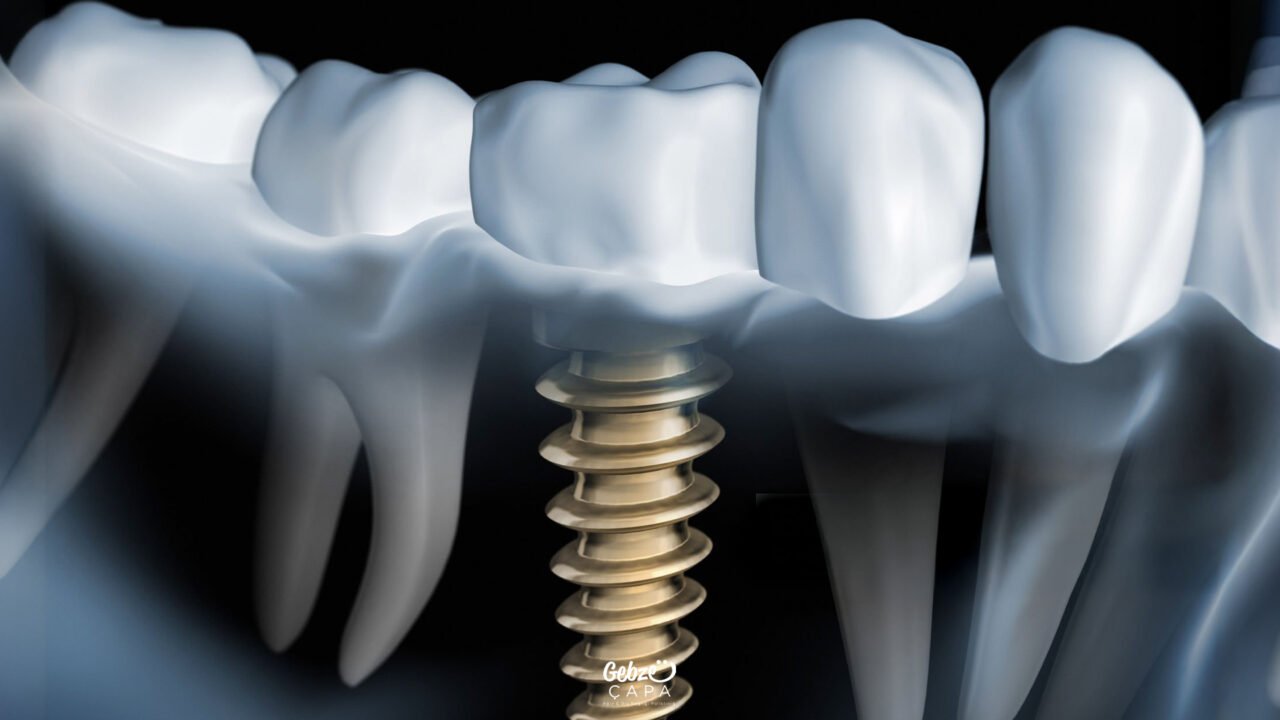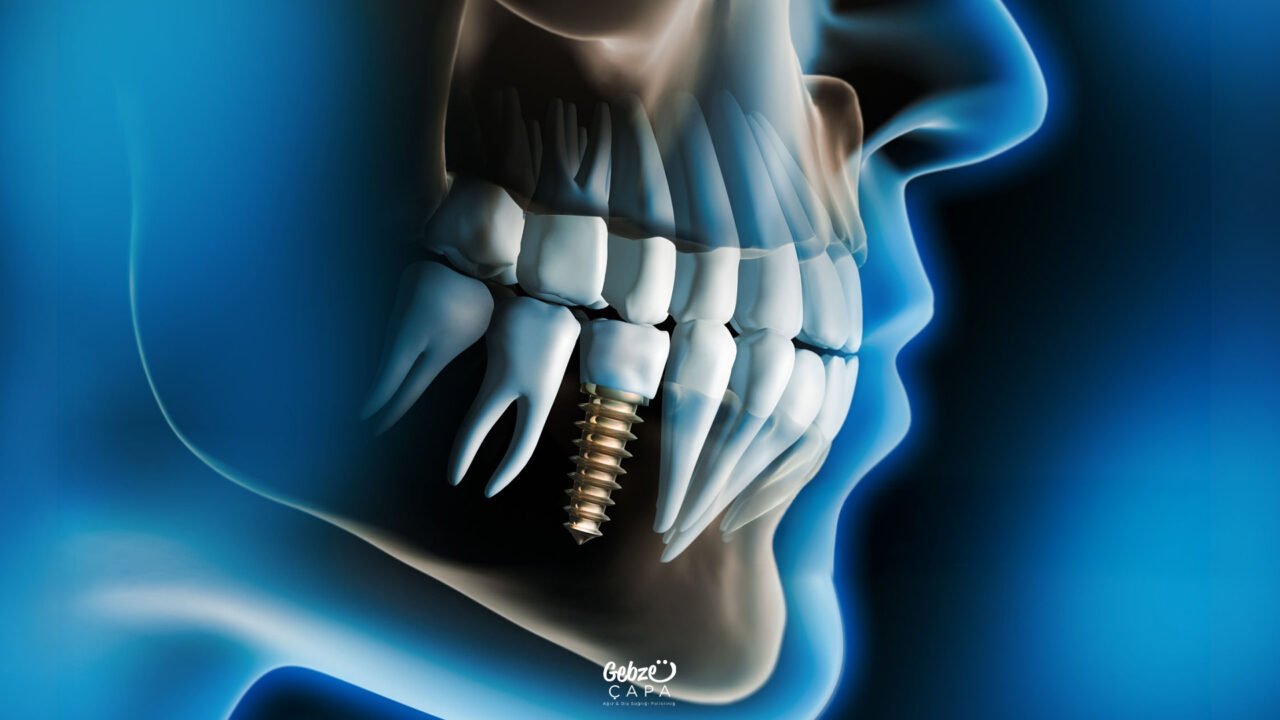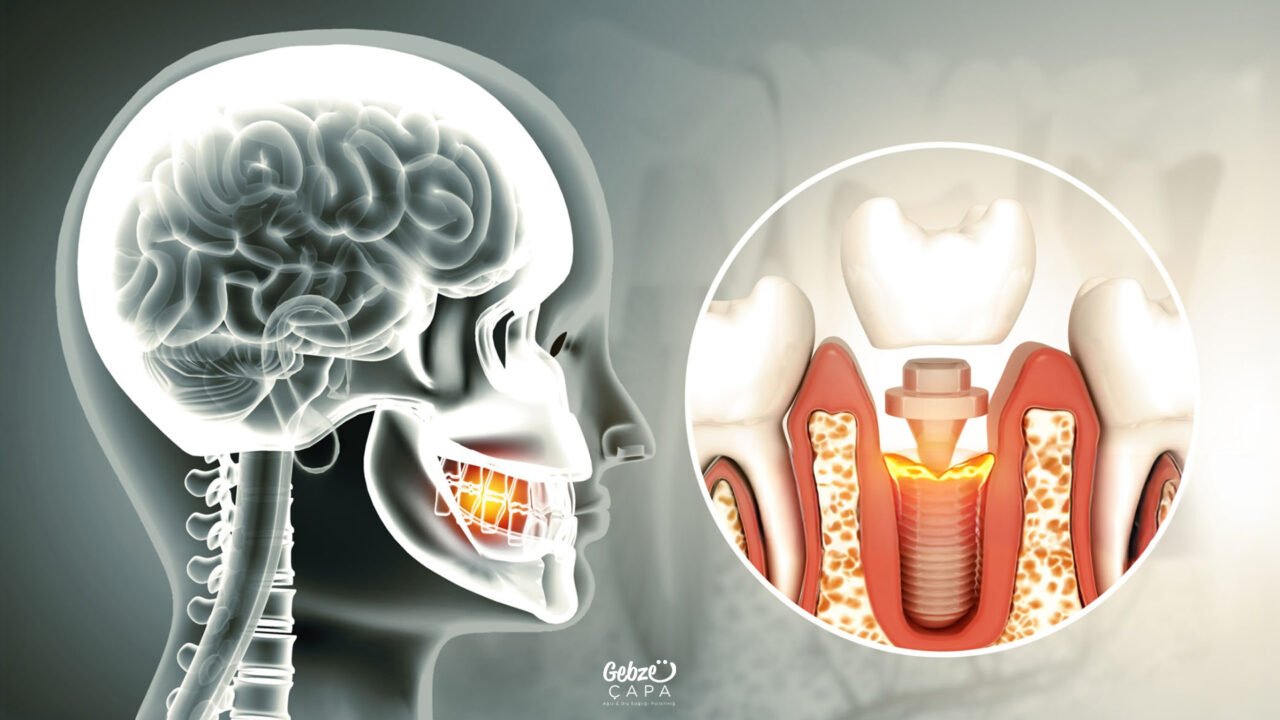Can a Person with an Implant Have an MRI?
Getting a dental implant is one of the most effective solutions for replacing missing teeth, both aesthetically and functionally. However, many people face a completely different health situation years after implant treatment. For example, they may need an MRI (Magnetic Resonance Imaging) due to a brain, spine, or joint condition. We encounter many patients who ask whether they can have an MRI if they have an implant.
This question reflects a very valid concern. MRI machines use strong magnetic fields and radio waves to provide detailed images of the body’s internal structure. These strong magnetic fields can interact with metal objects in the body. Therefore, it is frequently wondered whether titanium implants in the mouth pose a risk during this process.
Many patients worry, asking questions like, “Can someone with an implant have an MRI?”, “Will the magnetic field attract the implant?”, and “Will the image quality be compromised?” This concern is particularly heightened when implant treatment has been ongoing for a long time and they don’t remember which material was used.
However, the important thing here is to correctly evaluate factors such as the implant’s material, production quality and position in the body.
What is an MRI and How Does It Work?
Many people with dental implants naturally experience anxiety when an MRI is required. To better understand this concern, it’s helpful to first understand how an MRI works. MRI is not just a “device”; it’s actually an advanced imaging technology that reveals the internal structure of our bodies in extraordinary detail.
MRI (Magnetic Resonance Imaging) is a method that uses powerful magnetic fields and radio waves to image organs, tissues, and internal structures in the body in high resolution. Its most significant advantage is that it does not involve radiation. This means, unlike X-rays or CT scans, the body is not exposed to any harmful radiation during an MRI. Therefore, it can be safely used on many patient groups, from children to pregnant women.

The device’s operating principle is actually quite interesting. An MRI machine is like a powerful magnet surrounding a large part of the body. This magnet aligns the hydrogen atoms in our body. The device then excites these atoms by sending out radio waves. As the atoms return to their original state, the resulting signals are processed by a computer and converted into a detailed image. In short, an MRI virtually “maps” the body’s interior.
However, there’s an important point to note: an MRI machine generates very strong magnetic fields. This field can affect certain metal objects in or attached to the body. Pacemakers, metal prosthetics, ear devices, and some surgical clips can pose a risk during an MRI. Therefore, patients should always be checked for metal in their bodies before an MRI.
Are Dental Implants Dangerous Because They’re Made of Metal?
To answer this question briefly and clearly: No, they are not.
Many people wonder if their implants, being made of metal, could shrink, heat up, or become damaged during an MRI. However, implants are quite safe in this regard.
The main material used in dental implants is usually titanium or a titanium alloy. Titanium is known not only for its durability but also for its biocompatibility with body tissues. This means the body doesn’t perceive this metal as a “foreign” substance, allowing the implant to fuse strongly with the jawbone.
Best of all, titanium is non-magnetic.
This means that the strong magnetic field generated by an MRI machine won’t attract, dislodge, or heat a titanium implant. In other words, having an implant in your mouth doesn’t prevent you from having an MRI. In fact, almost all implant systems today are manufactured with MRI safety in mind.
Sometimes patients ask, “Will there be any distortion in the image?” Yes, in rare cases, if an area very close to the implant is being imaged, a small shadowing effect may occur. This means a slight blurring of the area where the metal is located on the MRI image. However, this is usually limited to that area and does not affect the overall quality of the image.

So, Are All Implants Safe?
At this point, it’s important to note a small but crucial detail: Not all implants are created equal.
Yes, the vast majority of dental implants used today are made of titanium, a material considered MRI-safe. However, not every implant has the same history or manufacturing method.
Implants made in older times, or models made from certain special alloys, can exhibit mild magnetic properties. This can pose a small, though rare, risk during an MRI. Therefore, the most accurate way to determine whether an implant is safe is to know its material.
If you had your implant placed many years ago or don’t remember the brand, it’s always a good idea to consult your dentist before having an MRI. Your dentist can verify the implant’s brand and model and, based on the manufacturer’s information, provide a clear indication of its MRI safety.
What to Consider Before an MRI?
If you have implants in your mouth and your doctor has requested an MRI, the first and most important thing you should do is to inform the radiology technologist or doctor.
This seemingly small piece of information is crucial for both your safety and the accuracy of the imaging.
Before an MRI, patients are often asked in detail about any metal parts in their bodies. This includes any metal-containing structures such as pacemakers, ear implants, orthopedic prosthetics, or dental implants. The strong magnetic field generated by the MRI machine can interact with certain metals.
If the radiology team knows you have implants, they can adjust the device’s settings accordingly. They can optimize the imaging area if necessary or, in very rare cases, recommend an alternative imaging method. This ensures a safe scan and clear images.

Does an MRI Damage an Implant?
The answer is no. An MRI will not harm your dental implant in any way.
Modern implants are structures that are completely integrated with the jawbone, forming a strong bond called “osseointegration.” This makes them extremely stable and durable. The magnetic field generated by the MRI does not interact with these implants; therefore, they will not move, loosen, overheat, or become damaged.
Many patients wonder if they will experience pain, pressure, or any changes to the implant after an MRI. However, there’s no need to worry—your implant will not experience any discomfort, deformation, or loosening after the MRI.
So, we can confidently say that after the MRI, your dental implant will remain as strong and healthy as before.


